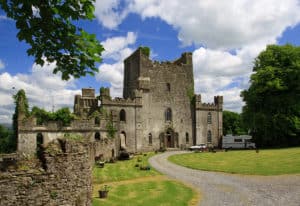Secret Societies and Their Hidden Influence in European History: Unveiling the Mysterious Shadows

Updated On: March 30, 2024 by Fatma Mohamed
Throughout European history, the shadowy presence of secret societies has often been felt but rarely seen. These organisations have shaped the continent’s trajectory from darkened meeting rooms, their rituals and traditions steeped in mystery and imbued with power. Since antiquity, groups like the Mithraic Mysteries, which spread across the Roman Empire, have pulled the strings of social and political change, their secretive natures creating a tapestry of lore and suspicion surrounding their true intentions and the extent of their influence.
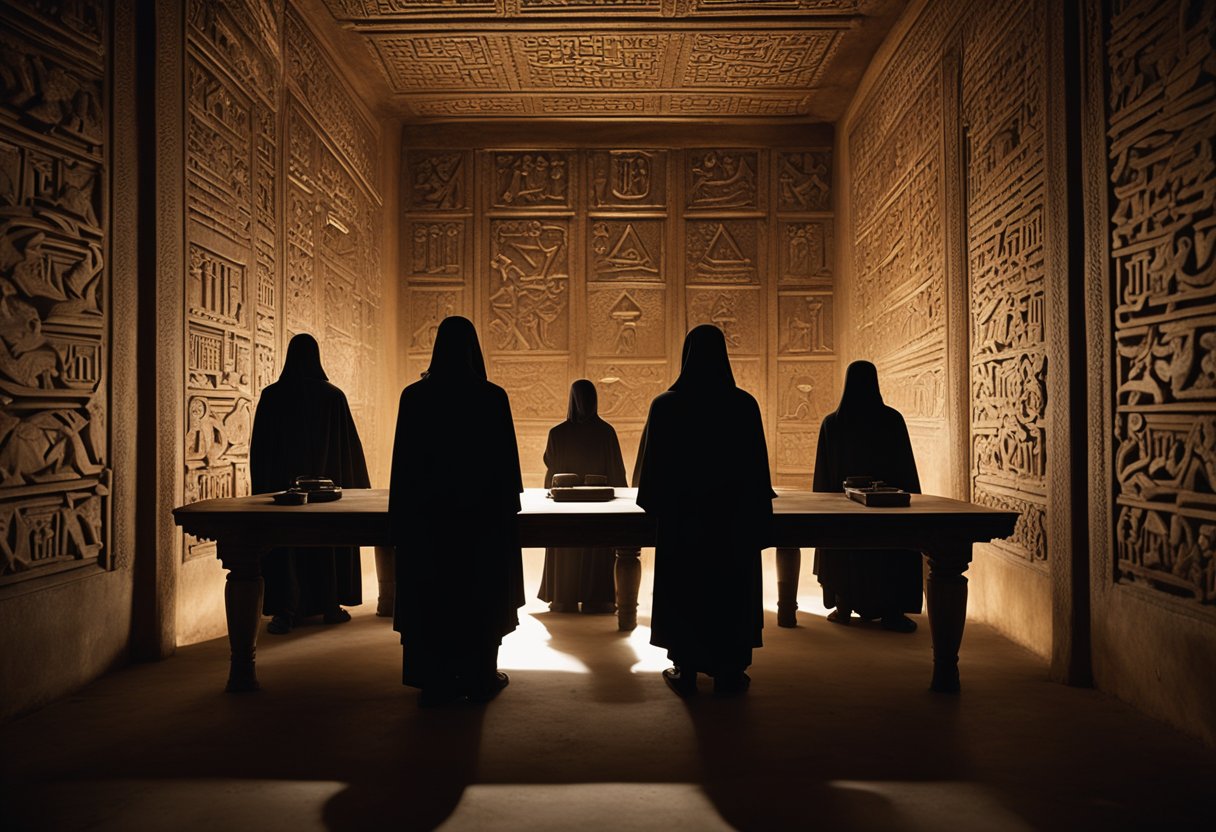
In the flicker of candlelight, whispers of arcane knowledge and covert operations have etched the legacies of groups such as the Hermetic Order of the Golden Dawn and the Freemasons into the cultural bedrock of Europe. Their hidden hands have guided the course of governance and societal norms, often attracting members of high status and profound impact. While the specifics of their inner workings and ceremonies remain closely guarded, these societies are known to have developed intricate symbols and practices that weave through the fabric of Western civilisation.
Table of Contents
Origins of Secret Societies
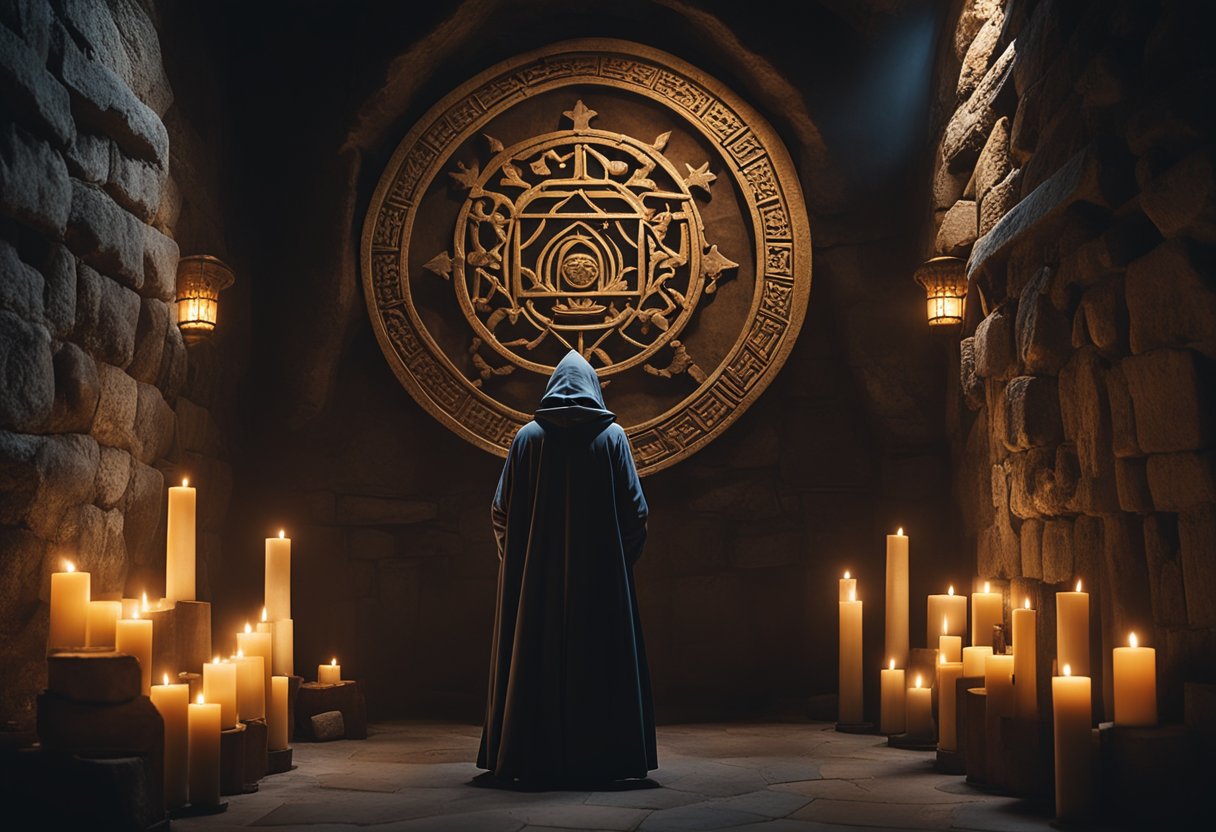
In exploring the intricate tapestry of European history, we uncover the enigmatic role of secret societies. These organisations have been influential in shaping the course of events from the shadows, leveraging secrecy and ritual to bond their members.
Masonic Beginnings
The Freemasons are widely acknowledged as one of the most significant secret societies, having left an indelible mark on European history. Originating in the local stonemasons’ guilds of the Middle Ages, the Freemasons evolved, particularly with the establishment of the Grand Lodge of England in 1717. Their practices, symbols, and rituals, steeped in craftsmanship and enlightenment ideals, forged networks across continents, including the initiation depicted in a Viennese Masonic Lodge in 1784, evidencing their ceremonial complexity.
Knights Templar and the Crusades
The Knights Templar, a monastic military order founded in the 12th century, amalgamated religious zeal with martial prowess. Their genesis is intertwined with the Crusades, as they were established to protect Christian pilgrims en route to Jerusalem. Their remarkable financial acumen and international influence sparked intrigue and myth, which persists to this day, as their secretive operations and sudden dissolution continue to captivate historians and enthusiasts alike.
Ancient Foundations
The fabric of secret societies is threaded with the mystique of antiquity. Historical evidence leads us back to the mystery religions of ancient Egypt, Greece, and Rome. These groups, such as the cult of Dionysus and the followers of Eleusinian and Orphic mysteries, maintained secret rites and claimed access to esoteric wisdom. Their secretive nature set a precedent for European clandestine groups that sought to influence the world through veiled channels of power and knowledge.
Evolution and Expansion
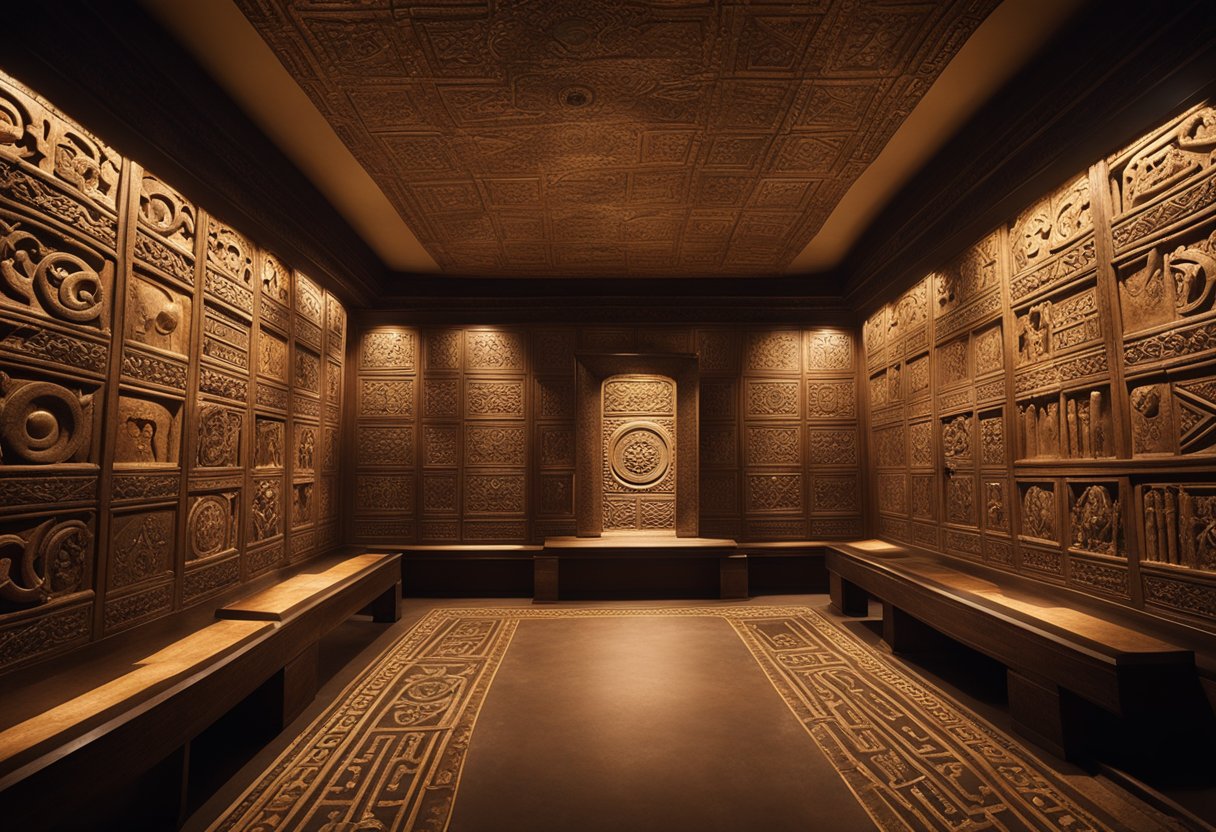
As we begin to explore secret societies and their role in European history, it is imperative to understand how they have evolved and expanded their influence over time. The Enlightenment period served as a catalyst for change, where the quest for knowledge and reason fostered the genesis of groups like the Freemasons and the Illuminati, which sought to exert their power discreetly.
Freemasonry and Enlightenment
Within the 18th century, Freemasonry became synonymous with the Enlightenment, cultivating ideals such as liberty, fraternity, and equality. Originating from the stonemason guilds, Freemasonry transformed into a sophisticated network spanning Europe. Its lodges became hubs for progressive discussion, attracting intellectuals who played a pivotal role in shaping political philosophy and scientific thought during the era.
The Illuminati and Power Dynamics
The Illuminati, established in 1776, was a relatively short-lived yet influential group that operated with a stringent hierarchy and complex rituals. Its core aim was to infiltrate and influence powerful institutions covertly, creating constant shifts in the power dynamics of European society. While often surrounded by myth, the Illuminati’s real intentions and actions remain a topic of scholarly investigation.
Growth Across Europe
The influence of secret societies witnessed considerable growth across Europe during the 19th century. As the ideals of these groups aligned with growing nationalist and liberal movements, they embedded themselves within the fabric of social and political change. These societies, including the Freemasons and the Illuminati, played significant roles in pivotal events, subtly driving European history’s trajectory through clandestine meetings and strategies.
Influence on Society and Governance
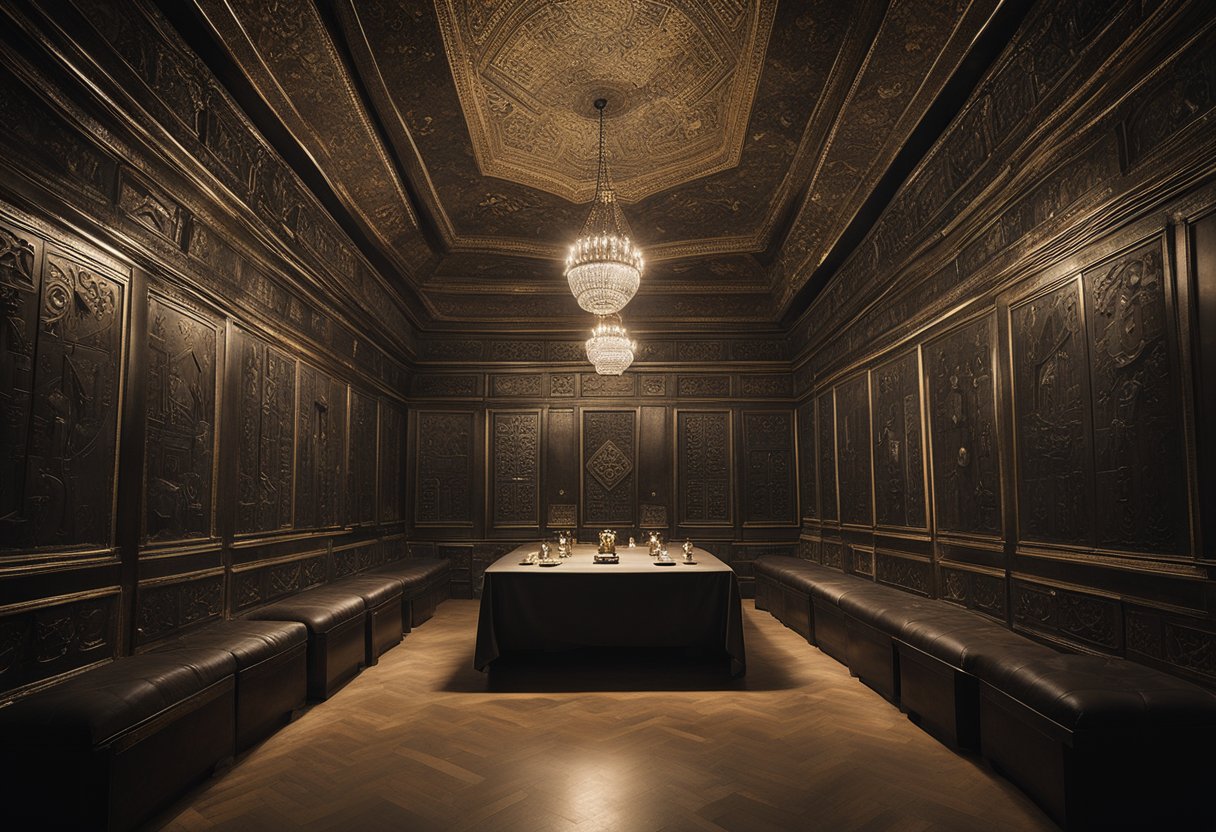
From the shaping of political systems to the guidance of rulers, secret societies have played a discreet yet significant role in the tapestry of European governance. Their covert presence often belies the extent of their influence.
Secret Societies in Politics
Secret societies have been key players in the undercurrents of political power, their clandestine nature allowing them to operate unseen yet impactful. In Southern Europe, as the 19th century waned, the term ‘secret society’ became synonymous with Masonic influence, as Catholics accused Freemasons of controlling governments. The Catholics’ denunciation reflects the contentious space these groups occupied in the political arena.
Impact on Democracy
The fingerprints of secret societies are indelible on the pages of democratic evolution. Their structures and ideals, sometimes incubated in relative obscurity, have sailed across the Atlantic to embed within the American psyche. Founding Fathers like George Washington, a Freemason himself, were part of these orders that underscored civic engagement and democratic values. Their influence is evident in the foundations of the United States.
Involvement with Royalty and Leaders
The relationship between secret societies and leaders is intricate. These societies have not only interacted with but, in some instances, guided the hands of royalty and eminent leaders. Whether bolstering the position of a favourable ruler or subtly orchestrating the downfall of those oppositional to their goals, their engagement is a tapestry of support and manipulation. The connections between prominent figures such as Winston Churchill and arcane groups deepen the enigma surrounding their influence.
Secret Practices and Symbolism
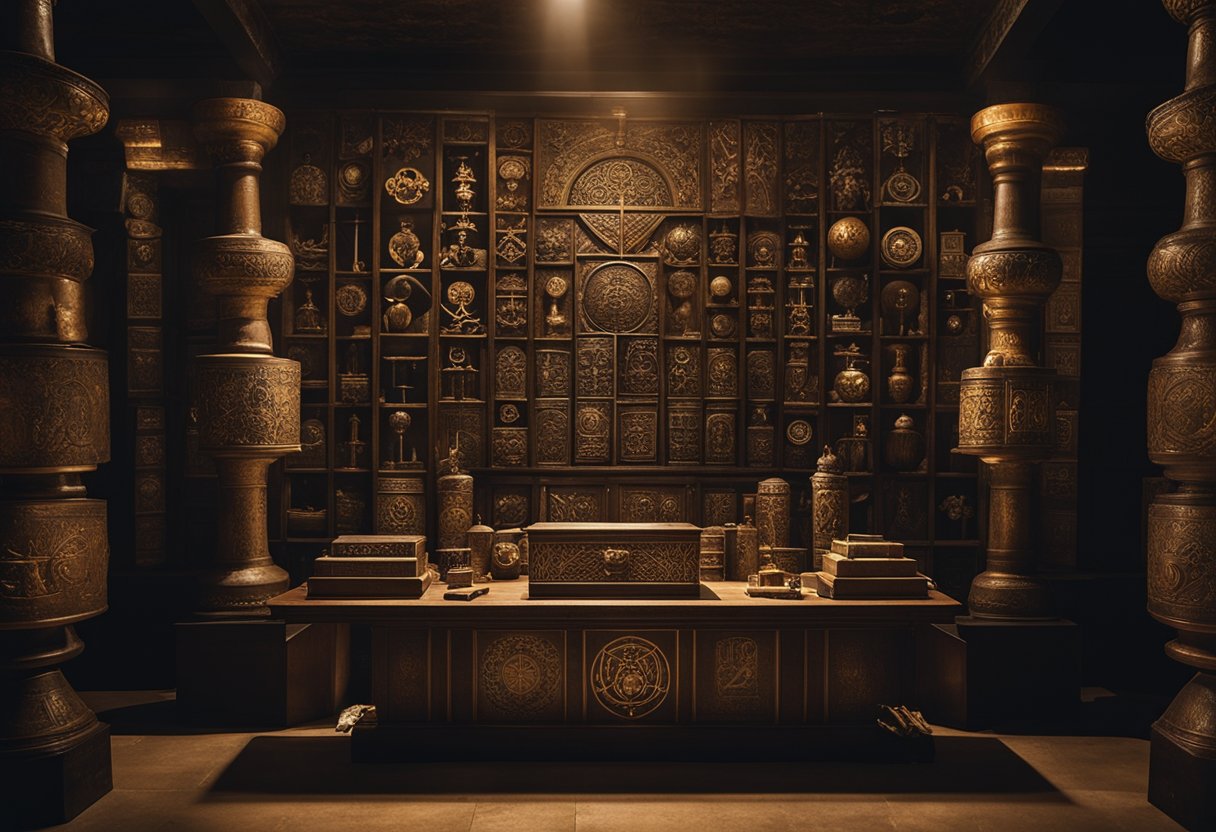
In the intricate tapestry of European history, secret societies have meticulously woven their own threads through rituals and symbolism, both of which hold significant sway over their clandestine operations and the perpetuation of their legacies.
Rituals and Initiations
Rituals are the heartbeat of secret societies, often shrouded in mystery and only revealed to members upon initiation. These societies, like the Freemasons, are renowned for their elaborate initiation ceremonies, which are steeped in symbolism and designed to impart moral and ethical lessons. For instance, new Freemasons undergo a series of progressive, dramatised rituals that convey the values and history of the organisation.
Symbols and Secrecy
Symbols are the silent language through which secret societies communicate their ideologies and hierarchy, both to insiders and the uninitiated. From the all-seeing eye to the square and compass of the Freemasons, these icons encapsulate the essence of the societies’ beliefs and practices. They also frequently employ secret handshakes and possess coded clothing, such as specific regalia or adornments, to signify rank and affiliation within the group while maintaining an air of secrecy to the outside world.
Notable Secret Societies
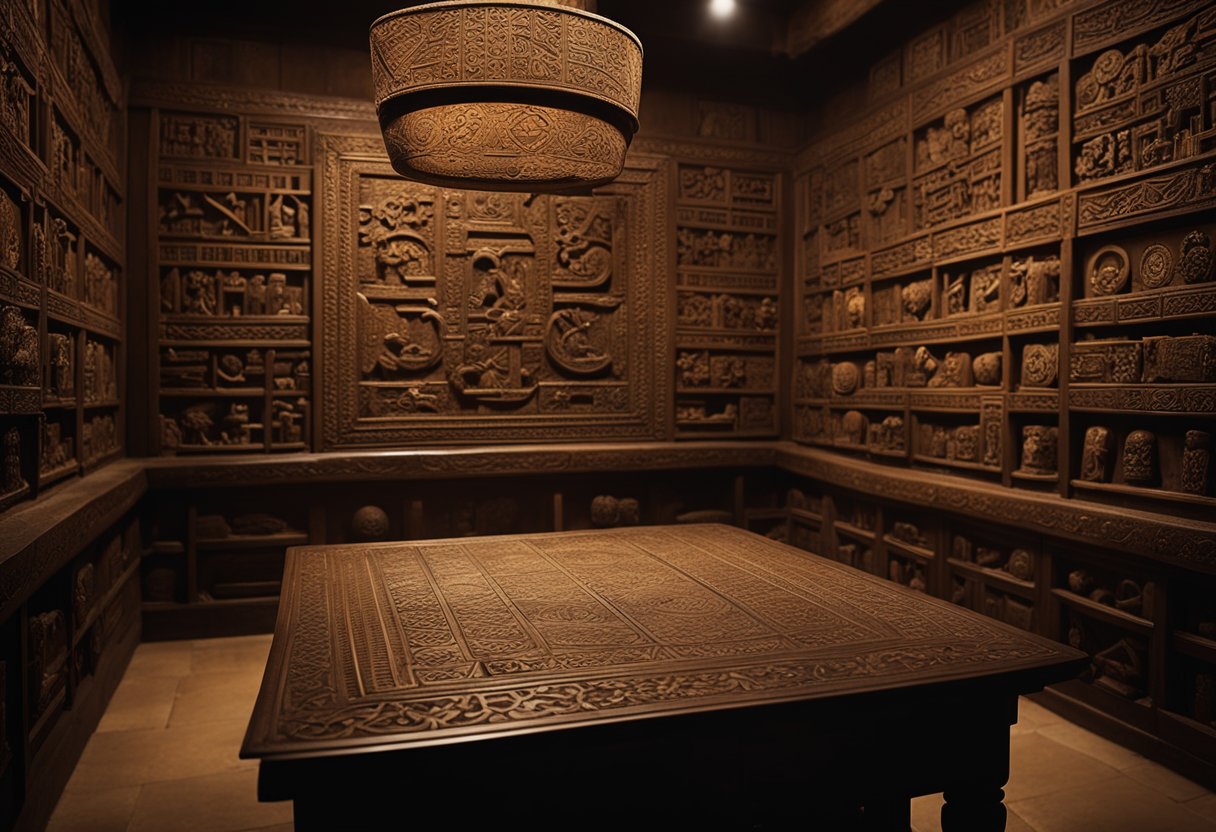
In the tapestry of European history, certain discreet organisations have left indelible marks through their cryptic practices and considerable influence.
Freemasonry
Freemasonry stands out as one of the oldest and most widespread fraternities, known for its elaborate rituals and moral and metaphysical ideals. Its origins are often traced back to the local fraternities of stonemasons, which, from the end of the fourteenth century, regulated the qualifications of stonemasons and their interaction with authorities and clients. Today, Freemasonry is recognised by its distinctive symbols like the square and compasses and the presence of lodges across the globe.
Members of Freemasonry, often referred to as Freemasons or Masons, purportedly include influential figures in society, fostering beliefs that they exert unseen control over various aspects of life and politics. The fraternity’s historical contributions to charitable pursuits and its complex moral philosophy contribute significantly to the narrative of its enduring legacy.
The Illuminati
The Illuminati, formally named the Bavarian Illuminati, was a short-lived Enlightenment-era secret society. Founded in 1776, it had an agenda to oppose superstition, religious influence over public life, and abuses of state power. The group’s ideologies and progressive objectives led to its vilification by conservative and religious critics.
Though the actual Illuminati disbanded, mythologised versions proliferate in conspiracy theories, asserting the group’s survival and control over world events. Its connections to enlightenment values mean that the term ‘Illuminati’ is often used in reference to perceived clandestine leadership pulling the strings behind global affairs.
Miscellaneous Fraternities and Orders
A variety of other fraternal organisations have flourished within educational settings, particularly college fraternities like Yale University. Societies such as the Order of the Skull and Bones have an aura of mystery, often credited with producing a network of powerful alumni.
These collegiate societies frequently manifest as secretive groups with selective membership, and they have engendered public curiosity about their internal activities and potential sway in worldly matters. The camaraderie and exclusivity of such groups underscore their undeniable, though often overstated, role in historical and contemporary influence.
Cultural and Historical Impact
We’ll explore how secret societies have left an indelible mark on the arts and generated a web of legends and conspiracy theories.
Arts and Literature
Secret societies have long influenced European arts and literature. The arcane symbolism found in the works of Renaissance masters often hints at esoteric knowledge that was closely guarded by such societies. For instance, the Freemasons, a society known for its intricate rituals and moral and philosophical teachings, are believed to have left their imprint on the architectural marvels of Europe. Some artists and influenced writers were members themselves, weaving the ideals and iconography of their orders into their creations, thereby perpetuating the cultural heritage of these clandestine organisations.
- Baldassare Castiglione’s “The Book of the Courtier”
- William Shakespeare’s “The Tempest” (speculated to contain Rosicrucian themes)
Their literary works sometimes carried veiled critiques of societal norms, subtly suggesting the transformative impact these societies sought to achieve despite often being suppressed.
Legends and Conspiracy Theories
Entwined with the factual history of secret societies are the legends and conspiracy theories that have both fascinated and alarmed the public. The elusive nature of groups such as the Knights Templar and the Rosicrucians has spawned a myriad of theories concerning their alleged hidden knowledge and supposed control over historical events. The Templars, originally a Christian military order, have become a symbol of mystery, often linked to the Holy Grail legend and said to possess otherworldly wisdom that could reshape society. Their dissolution and subsequent legend have contributed to recurring motifs in literature and popular culture, painting them as guardians of profound secrets.
The Cult of Mithras, while not as pervasive in modern narratives, was once a significant force known for its exclusive membership and rituals, particularly among Roman troops, and continues to draw interest from historians and enthusiasts alike.
Secret Societies and Religion
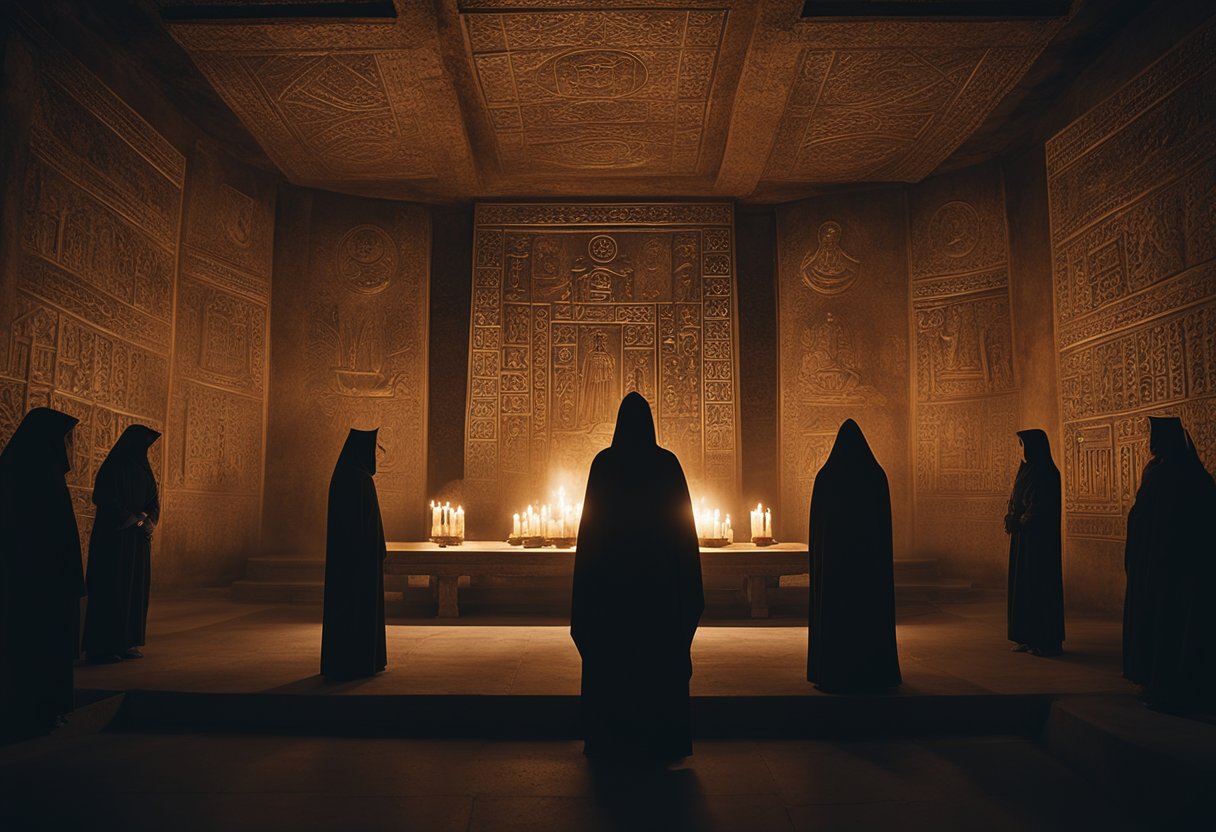
In European history, the intertwining of secret societies and religion is significant, especially when considering their often hidden impact on the course of events.
Christianity
Within the fabric of Christianity, the Catholic Church has seen various secret societies either emerge from within its ranks or form external entities challenging its authority. Notably, early Christians themselves formed clandestine communities to evade persecution, developing secret symbols such as the ichthys or fish. Over time, movements like the Knights Templar, originating in the 12th century, became prominent. Boasting a complex structure and enigmatic rituals, these Templar knights vowed to protect Christian pilgrims in the Holy Land, possessing considerable military and financial sway. Their eventual downfall came through accusations of secret rites and heresy, leading to suppression by the church and secular monarchies.
Other Religious Movements
Outside of mainstream Christianity, the Cult of Mithras, one of the religious cults known to the Roman Empire, played a significant role among Roman soldiers. The Mithraic Mysteries presented a highly organised secret society whose influence spread widely through the Roman legions. These mysteries, centred on the worship of Mithras, existed parallel to the rise of Christianity and displayed intricate initiation ceremonies, leading scholars to speculate on their influence on later Christian rituals. Despite the cult’s reach, its secrets were well guarded, and today, much of what we understand comes from artefacts and the physical remains of Mithraea, the temples devoted to Mithraic worship.
Global Connections and Modernity
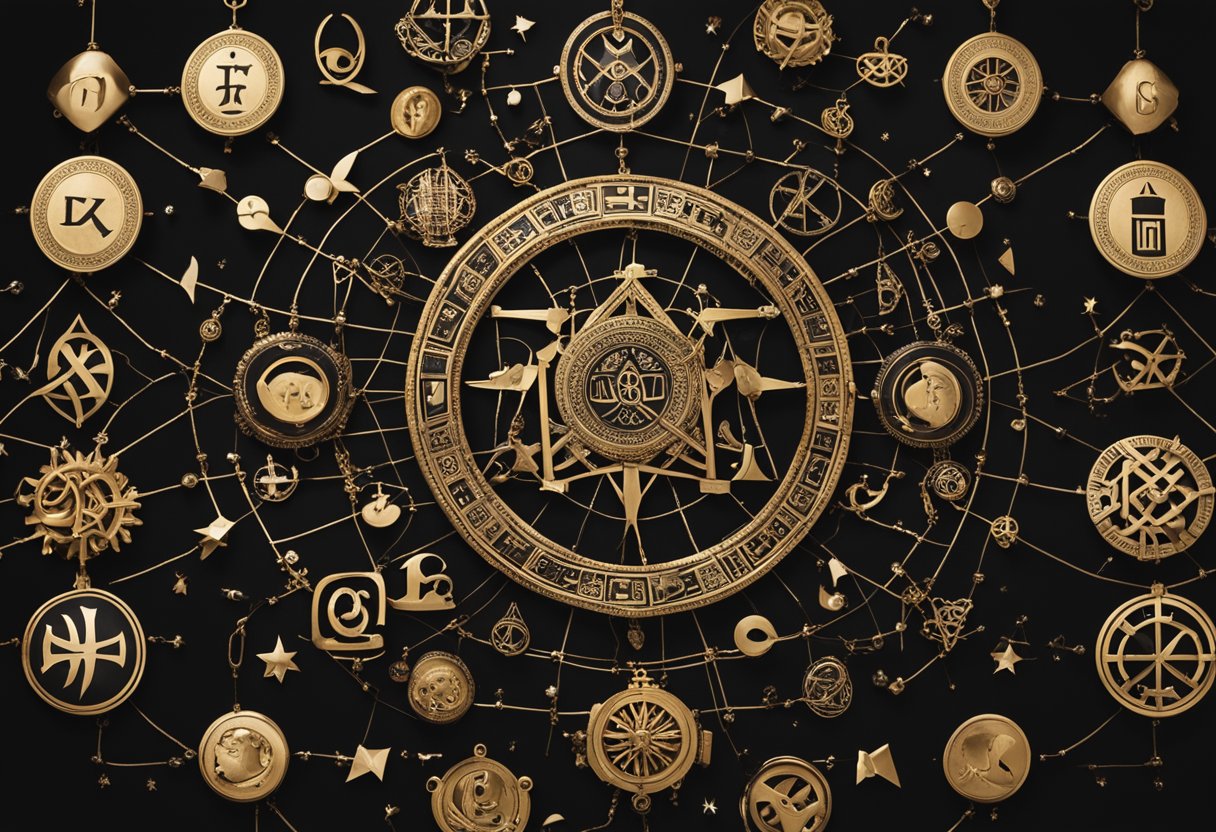
In this section, we’ll examine how secret societies have extended their influence internationally and their continuing significance in the modern world.
International Extensions
Tiandihui, also known as Hongmen, originated in China but has formed networks far beyond, with presence felt in Italy and Germany. We can trace their influence through the establishment of lodges globally.
Contemporary Relevance
In Washington, D.C., societies once known for their secrecy now participate in public ceremonies and philanthropic activities. They’ve adapted to modernity, often working in the open yet preserving certain traditions and networks that maintain their historical identity.
Challenges and Controversies
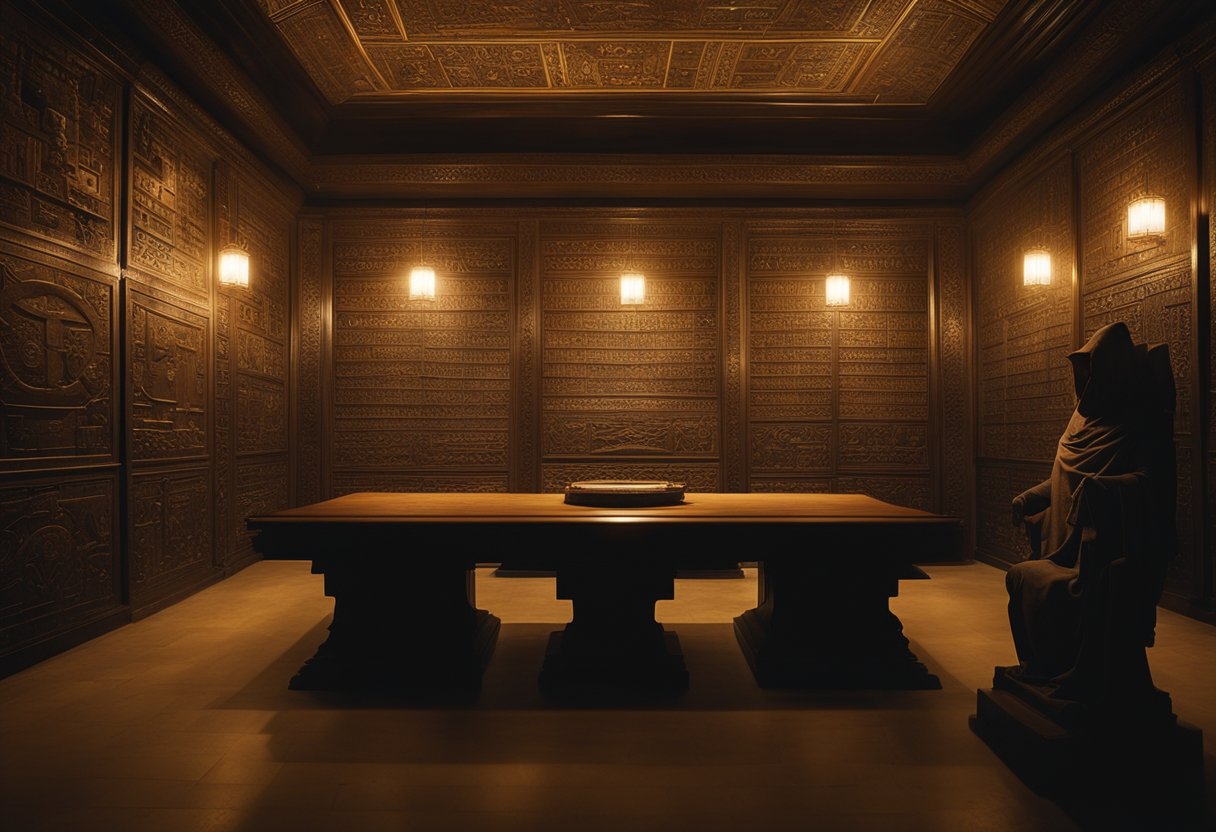
We have noted that the nature of secret societies inevitably invites a range of challenges and controversies that bear on both their public image and their legal standing.
Public Perception
Secret societies have often been viewed with suspicion by the public at large, and this atmosphere of mistrust can lead to various societal tensions. Historians have recorded instances where societies such as the Freemasons and the Illuminati have been accused of engaging in conspiratorial activities, whether substantiated or not. Suppressed knowledge and the intrinsic secrecy associated with these societies only serve to fuel such speculations and often lead to negative stereotypes.
Legal and Ethical Implications
From an ethical standpoint, the exclusive and often arcane practices of secret societies raise questions about their wider implications for society. Concerns regarding the potential abuse of power and the undermining of democratic processes have led to legal challenges. The Mithraic Mysteries, as a historical example discussed in National Geographic, and their influence within the ranks of Roman troops illustrate the intersection of private beliefs with public duty, which can pose ethical dilemmas.
The balance between respecting the private realm of individual freedoms—including association—and addressing the ethical concerns of potential hidden influence remains delicate. Ongoing legal debates often revolve around the extent to which these societies should be allowed to operate without scrutiny, given their capacity to exert undisclosed power over public affairs.
Future of Secret Societies
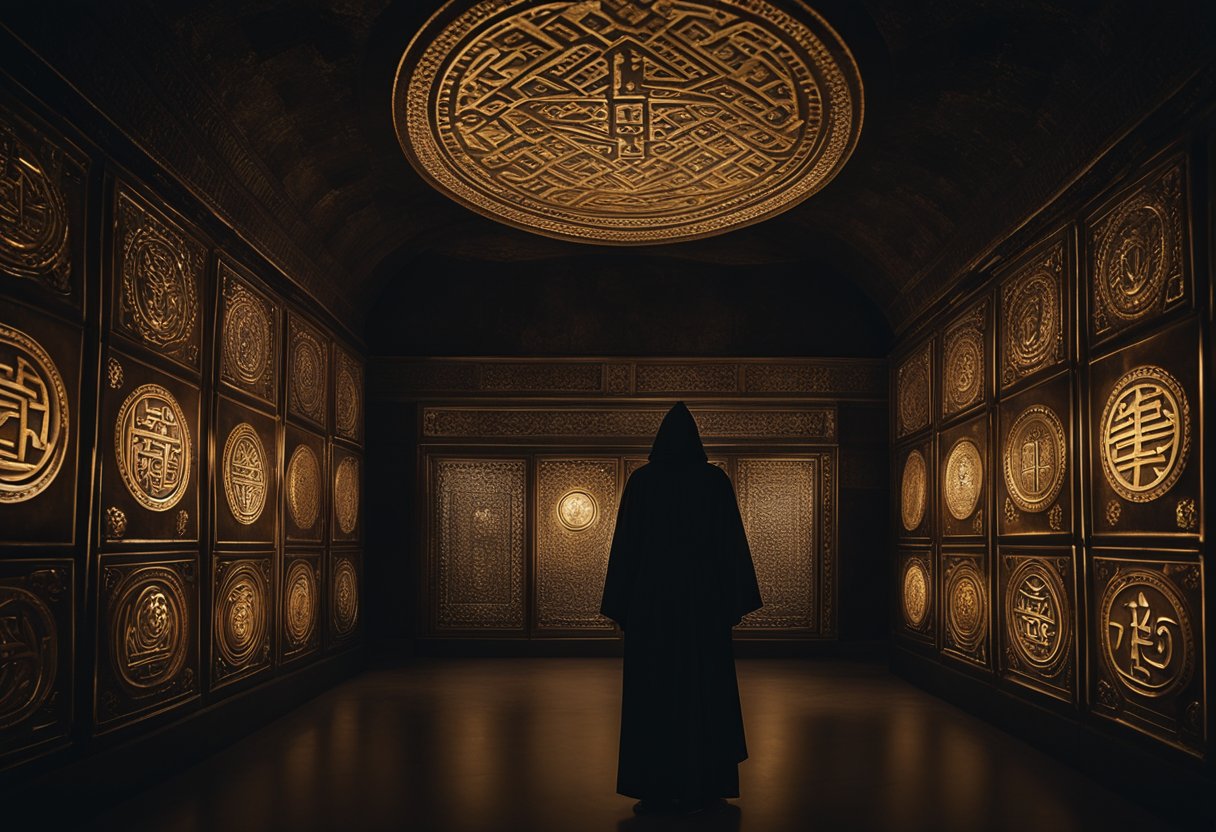
As the world progresses, secret societies continue to navigate through the modern era, employing both traditional methods and embracing new technologies to ensure their adaptation and survival.
Adaptation and Survival
In the ever-changing landscape of the modern era, secret societies must constantly amend their structure and methods to persist. The key to survival isn’t just secrecy but the ability to remain relevant to the interests and issues of newer generations. This includes embracing digital tools for communication and organisation, ensuring their practices are resilient against the increasing transparency demanded by today’s society.
Modern Initiatives
Our modern initiatives are focused on sustainability and ethical practices. We recognise that to remain pertinent and influential, we must align our secret endeavours with the broader concerns and values of contemporary society. Whether it’s advocating for environmental conservation or offering mentorship to budding leaders, our recent undertakings link the hidden influence of secret societies with visible and impactful community and global initiatives.
Frequently Asked Questions
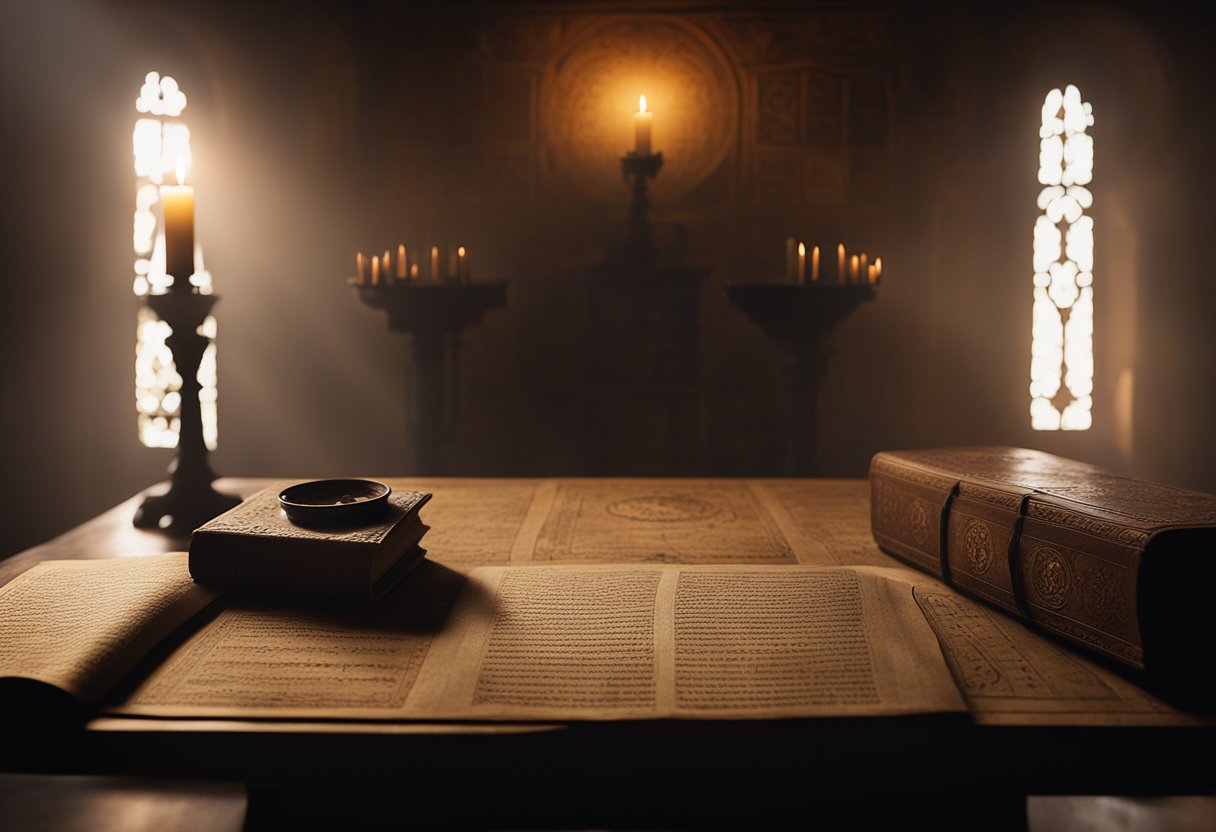
In this section, we address common queries regarding the hidden yet significant roles of secret societies in European history, their impact on politics, cultural influence, and their traces in academic institutions.
What are the most influential secret societies in European history?
Many secret societies have shaped the course of European history, but among the most influential are the Freemasons, the Knights Templar, and the Illuminati. Their networks extended across borders and often included powerful figures.
How did Freemasonry impact the political landscape of Europe?
Freemasonry’s principles of liberty, equality, and fraternity resonated with Enlightenment ideals, which influenced various political movements and revolutions. Their lodges became places where progressive ideas could be discussed away from the public eye.
Can you name secret societies that were active during the Enlightenment period?
During the Enlightenment, secret societies such as the Freemasons, the Rosicrucians, and the Bavarian Illuminati were active, each promoting intellectual exchange and challenging established religious and political institutions.
What role did secret societies play in the formation of modern European nations?
Secret societies were instrumental in shaping ideas of nationhood and democracy, often acting as catalysts for revolutionary change. They provided a network for radicals and reformers who played significant roles in events like the French Revolution.
Which European universities are known for their historical secret societies?
The University of Oxford and the University of Cambridge have longstanding histories with secret societies, such as the Apollo University Lodge and the Cambridge Apostles, reflecting a tradition of elite intellectual exchange.
How have secret societies contributed to the arts and culture in Europe?
Secret societies have had a subtle but notable influence on the arts and culture, with members including artists, writers, and composers who embedded esoteric symbols and themes into European literature, music, and art, leaving a lasting cultural legacy.



